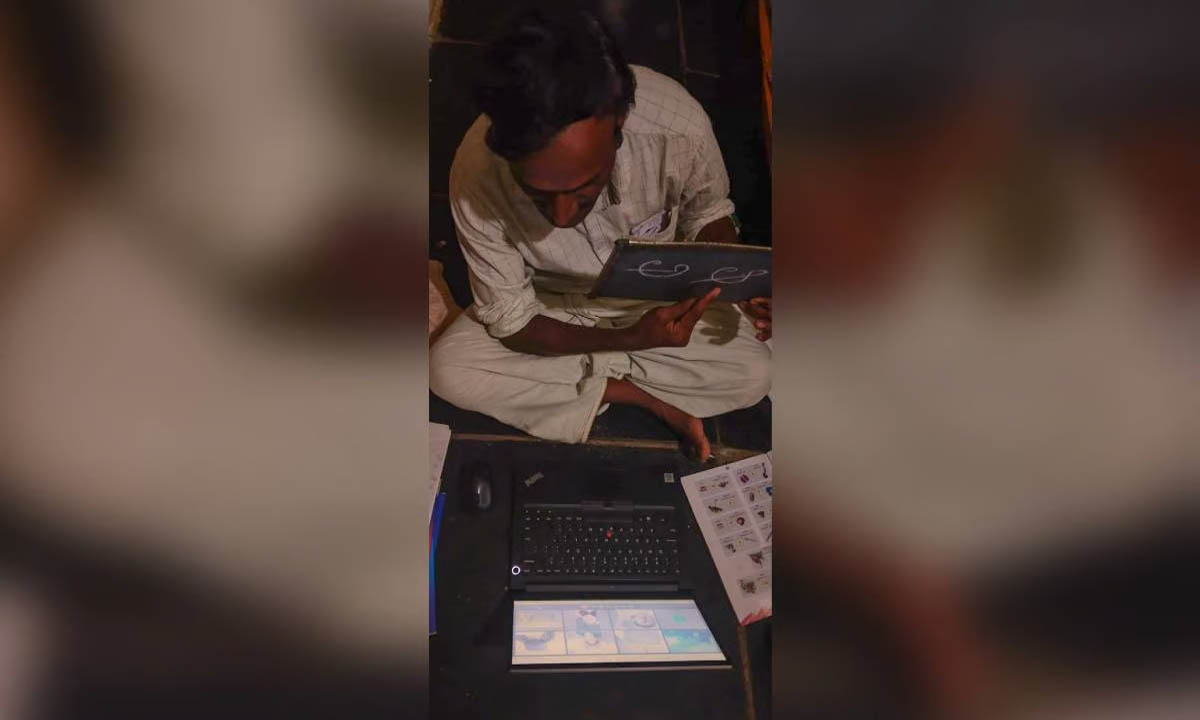KADAPA: Tavva Venkataiah, a 40-year-old from Khajipet of YSR district, is teaching Telugu reading and writing skills to the children of Non-Resident Indians (NRIs) through an online school launched by the Telugu Association of North America (TANA). This innovative programme, established in collaboration with the Andhra Pradesh School Education Department and TANA, aims to connect NRI children with their linguistic and cultural roots. Venkataiah, who has long been passionate about the Telugu language, is at the heart of this initiative.
The four textbooks: ‘Paluku’, ‘Adugu’, ‘Parugu’, and ‘Velugu’ are designed to teach various aspects of the Telugu language, from basic speaking and writing skills to grammar and epics. The curriculum spans four courses, each lasting one year. Upon completion, students take an online exam and receive certificates from the AP School Education Department and TANA.
At the centre of the initiative is Venkataiah, whose journey to this role is both inspiring and poignant. From a young age, he was drawn to Telugu language, writing stories and poems. After completing his Bachelor’s Degree from Kadapa Arts College in 2003, he pursued his Master’s in Telugu from Yogi Vemana University (2005-2007), followed by B.Ed from Rosamma B.Ed College in 2009.
Yogi Vemana University awarded him a Doctorate (P.hD) for his research on early Rayalaseema short stories in 2010. He also served as a member of the Andhra Pradesh Official Language Commission.
However, his life turned upside down when Covid-19 pandemic disrupted his teaching career, forcing him to work as a labourer. His plight went viral, attracting the attention of NRIs who offered financial help. Instead of accepting their aid, Venkataiah proposed teaching Telugu to their children, leading to his involvement with TANA’s online school.
To compensate for the time difference between India and USA, Venkataiah takes classes for NRI children early in the morning everyday and earns around Rs 15,000 per month. His dedication ensures that NRI children aged 8 to 16 remain connected to their cultural heritage through the Telugu language. In addition to his teaching, Venkataiah is also an accomplished author with 11 books to his name, including biographies of political figures and works on Telugu literature and grammar.
Reflecting on his experience, Venkataiah expressed immense pride in teaching Telugu to NRI students. He noted their enthusiasm for learning the language and the joy he derives from helping them connect with their ancestral roots. This programme not only preserves the Telugu language but also strengthens the cultural bonds of the Telugu diaspora, bridging the gap between their present and their heritage, he said.
